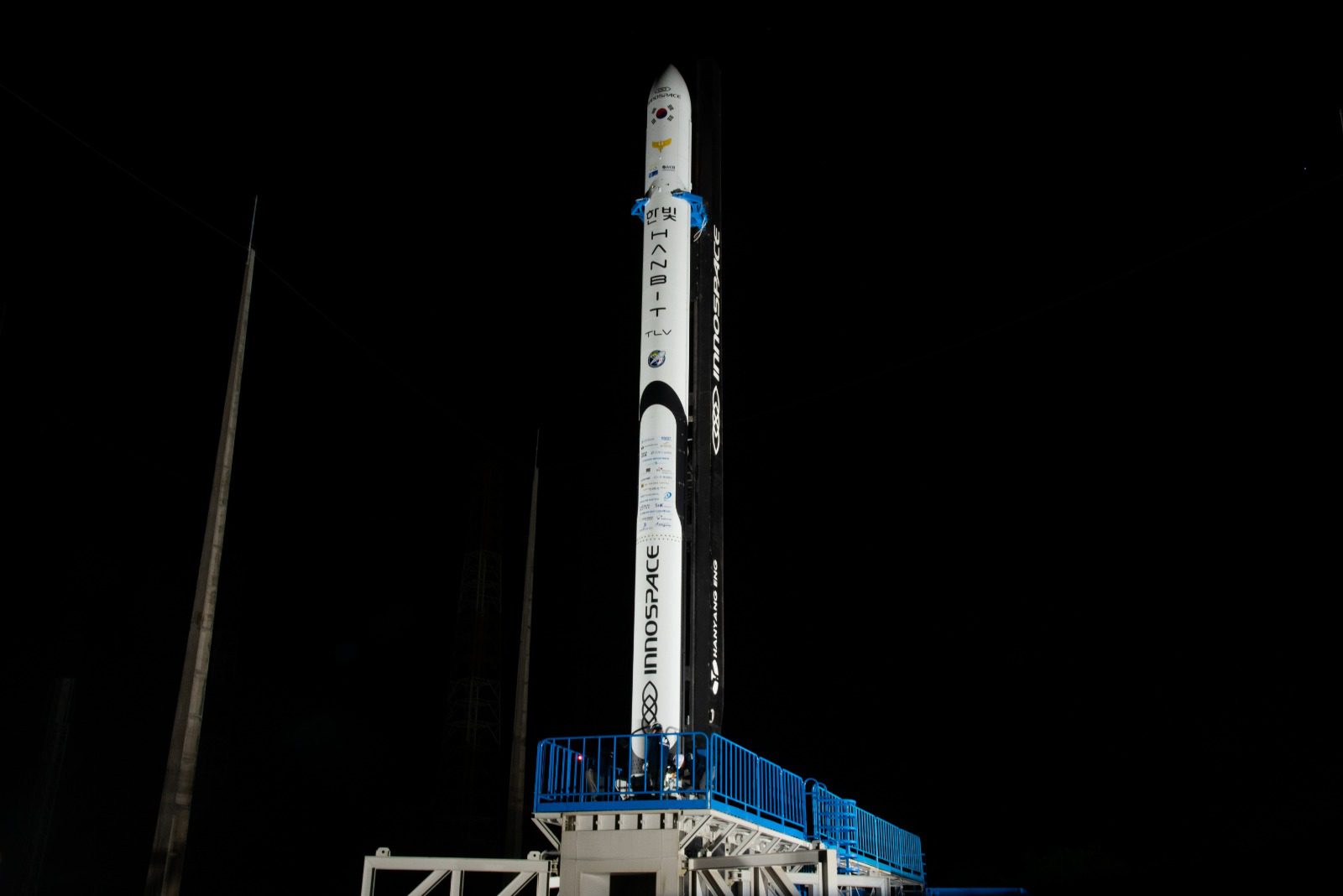Launch of the HANBIT-TLV is the 500th in the history of CLA and an important milestone for the Brazilian Space Program
Air Force Agency – DCTA, by Lieutenant Carolina Redlich
Operation Astrolabio, a result of the partnership between the Department of Aerospace Science and Technology (DCTA) and the South Korean private company INNOSPACE, has just resumed and a new launch window has been defined for the period from March 7 to 21, 2023.
On December 21, 2022, the launch of the HANBIT-TLV rocket had to be postponed due to a technical issue. According to INNOSPACE CEO Kim Soojong, several actions have been planned and implemented so that the next attempt can happen effectively. “Just as for the Alcantara Launch Center (CLA), safety is also a priority for INNOSPACE. We are confident that we will have a safe and successful launch,” commented Kim Soojong.
According to the General Coordinator of the Operation, Air Force Colonel Rodrigo José Fontes de Almeida, the mission involved many challenges and paradigm breaks, after all it is the first time that a foreign private company is launching from the Alcântara base. “This is an outstanding moment for the Brazilian Space Program, because Operation Astrolabio ratifies the future Alcântara Space Center (CEA) as a spaceport for New Space*, opening possibilities for future partnerships and the improvement of CLA’s processes and structure,” he explained.
With the launch of HANBIT-TLV, CLA reaches its 500th launch in its 40-year history, supporting numerous complex and multidisciplinary technological experiments.

New Space
New Space is a current concept in the space market that prioritizes the launch of smaller and lighter satellites, planned to orbit for shorter periods of time, which reduces the manufacturing time and, mainly, the cost of these payloads, besides enhancing the development of space research due to the constant update of the technologies involved and the increasing ease of miniaturization and use of new components.
About the payload
The South Korean rocket is equipped with a payload called Sistema de Navegação Inercial (SISNAV), developed by military and civilian professionals from the Instituto de Aeronáutica e Espaço (IAE), with support from the Brazilian Space Agency (AEB).
SISNAV is an essential Brazilian technological experiment for autonomous rocket navigation, which will allow Brazil a major step towards independence in the development of vehicles for launching satellites of all types. The SISNAV Project is inserted within the Navigation and Control System (SISNAC), planned for the FAB’s Microsatellite Launching Vehicle (VLM), focused on low orbit New Space.
This mission provides the technical and operational development of the teams involved in hybrid propulsion technology, evaluation of the SISNAV flight performance and systems for tracking, transmitting and receiving data. In this way, the Brazilian Space Program will be strengthened, showing the world Brazil’s capacity to develop aerospace technologies.
